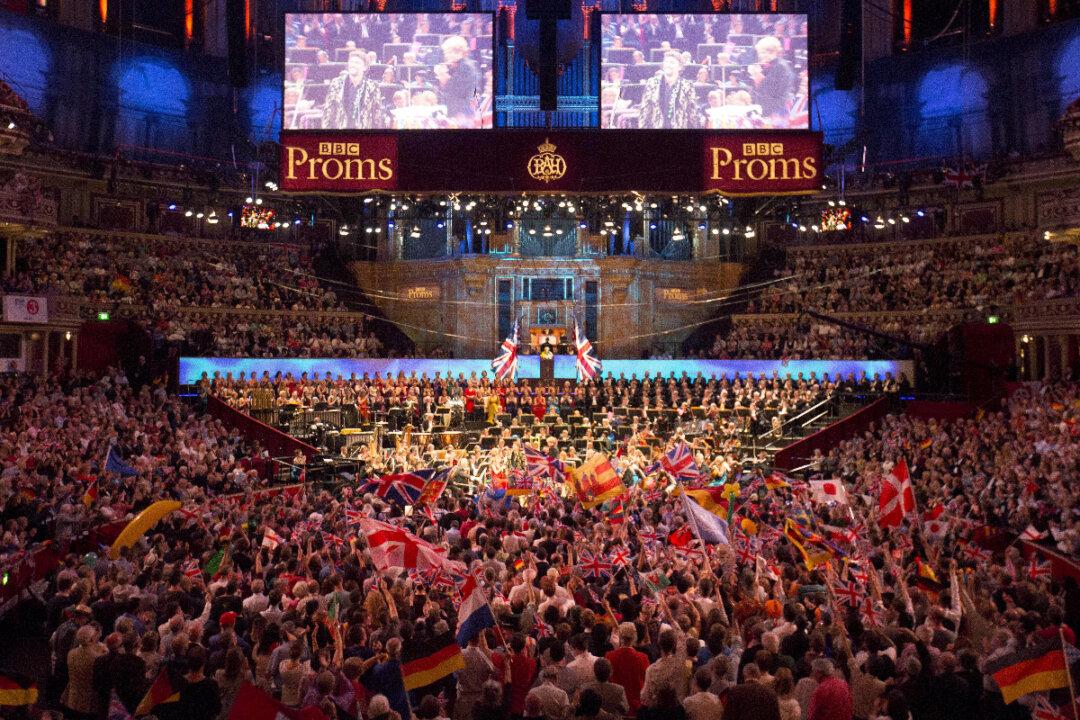“Rule Britannia!” will be played at The Last Night of the Proms, the traditional classical concert that is televised to the nation every year—but without the words, the BBC announced on Monday.
The BBC, Britain’s publicly funded broadcaster, said that the final night of its Proms concert series would feature only orchestral versions of “Rule Britannia!” and another patriotic mainstay, “Land of Hope and Glory,” instead of the traditional versions with lyrics.





